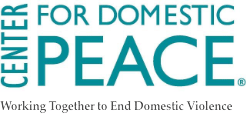Online and Computer Safety Tips to Protect Yourself
If you are in danger, use a safe computer that your abusive partner does not have direct or remote (hacking) access to. It might be safer to use a computer at a public library, a community technology center (CTC), a trusted friend’s house, or an Internet café. If you think your activities are being monitored, they probably are.
Browsing the web safely and privately is concern for many people. A good general rule is that nothing online is private. Another general rule is that you can’t be completely anonymous online. It is not possible to delete or clear all the “footprints” of your computer or online activities. If you are being monitored, it may be dangerous to change your computer behaviors, such as suddenly deleting your entire Internet history if that is not your regular habit.
Email and Instant/Text Messaging (IM) are not safe or confidential ways to talk to someone about the danger or abuse in your life. If possible, please call a hotline instead. If you use email or IM, please use a safe computer and an account that your abuser does not know about.
Consider using this new Tech Safety App built by the trusted National Network to End Domestic Violence. This app contains information that can help someone identify technology-facilitated harassment, stalking, or abuse and includes tips on what can be done. https://techsafetyapp.org/
Download C4DP’s Digital Safety Guide English and C4DP’s Digital Safety Guide Spanish
You can take steps to prevent sensitive and personal information from making its rounds on the Web.
- Have more than one email account and use them for different purposes.
- Create email addresses that don’t contain your full name since that can be very identifying.
Passwords
- Safest passwords contain letters, numbers and symbols. Avoid words that are in a dictionary and any important dates.
- Try not to have the same password for every account. Come up with a system that’s easy to remember but will enable you to have a different password for each account.
Social Networks
- Check out the privacy settings and make sure it’s set to the level of privacy you want. Keep in mind that even if you set your social network page to private, it doesn’t guarantee that your information is completely private.
- Don’t forget that your friends may be able to see your other friends’ posts and pages even if they’re not friends with each other.
- Be thoughtful about who’s on your friend list when you post or link to certain things.
- Read the social network’s privacy policy and find out who else has access to your information, such as advertisers, third‐parties, etc.
Online Accounts
- Read the privacy policy. When you create an online account, whether it’s to buy things, to join a group, or open an account, you should know what that site does with the information you share.
- Pay attention when creating an account. Oftentimes, this is when you can opt out of sharing personal information beyond what’s necessary to create an account.
- Click “no” when it offers to check your email address book to find your “friends.” Some illegitimate sites have used this option by sending spam and viruses to everyone in your address book.
- Try not to use your name or a combination of your name as your username.
- When filling out account profiles, for increased privacy give no or very minimal information and opt out of joining the site’s directory.
- For more privacy, try not to use too many applications with one account username/password. If someone guesses your username or password, they’ll have access to all your applications.
- Log off when you’re not using an account and do not choose to have the computer remember your passwords.
Friends & Family
- Talk to your friends and family about what they can post online about you.
- Don’t forget that employers, churches, sport teams, groups, and volunteer organizations that you are a part of may share your personal information online.
Safe Web Browsing
- Make sure you are running anti‐virus and anti‐spyware software and that they are the most updated versions.
- Periodically run scans on your computer, separate from your regular antivirus/antispyware, such as bitdefender online scanner [http://www.bitdefender.com/scanner/online/free.html].
- Periodically delete history, cookies, temporary internet files, and saved forms and passwords from your web browser.
- For added privacy, use anonymizers when you browse the web.
- Most search engines keep records of search terms, so when using search engines, avoid searching your full legal name with information you don’t want linked together, such as your social security number or drivers license number.
Source and More Information about Technology and Safety: National Network to End Domestic Violence
